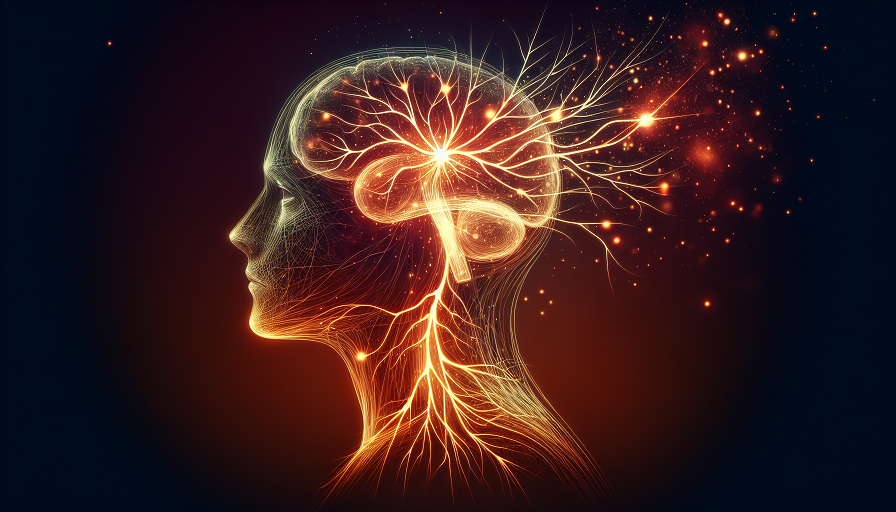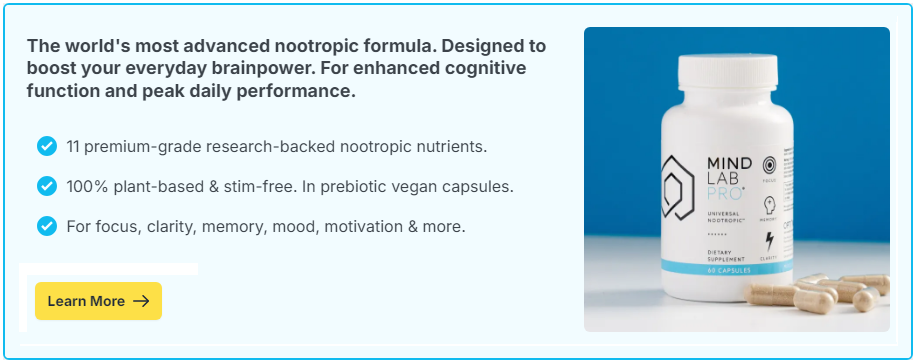
Retirement marks the beginning of a new chapter in life—one filled with opportunities for personal growth, travel, creative pursuits, and intellectual engagement. However, as people age, cognitive functions such as memory, focus, and mental energy can decline, making it challenging to stay sharp and productive.
Many retired professionals want to continue contributing to society, pursuing hobbies, or even engaging in part-time consulting or mentoring. To maintain a high level of cognitive performance, they seek ways to support brain health and sustain mental clarity.
This is where nootropics—cognitive-enhancing supplements—come in. By improving memory retention, enhancing focus, and protecting against age-related cognitive decline, nootropics can help retired professionals stay sharp, engaged, and productive.
Contents
The Cognitive Challenges of Aging
As the brain ages, it undergoes several changes that can impact memory, focus, and problem-solving abilities. Some of the most common cognitive challenges include:
Declining Memory Retention
Many older adults find it harder to remember names, dates, or details from conversations. This is due to reduced synaptic plasticity and a decrease in neurotransmitters like acetylcholine, which play a key role in memory formation.
Slower Processing Speed
Cognitive processing speed tends to decline with age, making it more difficult to quickly recall information or switch between tasks efficiently.
Reduced Focus and Attention Span
Distractions become more challenging to manage as attention span decreases with age. Retired professionals looking to stay engaged in complex tasks may struggle to maintain concentration.
Increased Mental Fatigue
As people age, mental stamina declines, leading to faster cognitive exhaustion after engaging in mentally demanding activities.
Higher Risk of Neurodegenerative Conditions
Conditions like Alzheimer’s disease and mild cognitive impairment (MCI) become more common with age, emphasizing the importance of brain-protective strategies.
Stress and Emotional Well-Being
Retirement can be a significant life transition, leading to changes in routine and, in some cases, feelings of isolation or anxiety, which can affect mental clarity.
How Nootropics Help Retired Professionals Maintain Mental Clarity
Nootropics support brain function by optimizing neurotransmitter levels, improving blood flow, and protecting neurons from oxidative stress. Here’s how they benefit retired professionals:
Enhancing Memory and Recall
Nootropics that boost acetylcholine and glutamate activity can improve memory retention, making it easier to recall important details and past experiences.
Supporting Neuroplasticity
Some nootropics promote neurogenesis (the growth of new brain cells), helping older adults maintain cognitive flexibility and adaptability.
Increasing Mental Energy
By optimizing mitochondrial function, certain nootropics help sustain energy levels, reducing cognitive fatigue and enhancing mental endurance.
Improving Focus and Attention
Dopaminergic nootropics enhance sustained attention, helping retired professionals stay engaged in reading, writing, or learning new skills.
Protecting Against Cognitive Decline
Antioxidant-rich nootropics reduce oxidative stress and inflammation, which are linked to age-related cognitive decline.
Reducing Stress and Enhancing Emotional Well-Being
Adaptogenic nootropics help regulate cortisol levels, promoting a sense of calm and emotional stability.
Best Nootropics for Retired Professionals
While there are many cognitive enhancers available, the following nootropics are particularly effective for maintaining mental clarity and productivity in retirement:
Citicoline
Citicoline supports acetylcholine production, improving memory, focus, and cognitive processing speed—essential for staying mentally sharp.
Bacopa Monnieri
Bacopa Monnieri is known for enhancing memory recall and reducing stress, making it an excellent choice for older adults seeking cognitive support.
Lion’s Mane Mushroom
This powerful nootropic promotes nerve growth factor (NGF), supporting neuroplasticity and long-term brain health.
Rhodiola Rosea
An adaptogen that combats mental fatigue and stress, helping retired professionals stay mentally resilient and engaged.
L-Theanine
Found in green tea, L-Theanine promotes relaxation while enhancing focus and mental clarity, making it ideal for reducing stress without causing drowsiness.
Ginkgo Biloba
Ginkgo Biloba enhances blood flow to the brain, improving memory, focus, and cognitive longevity.
Noopept
Noopept enhances neuroplasticity and learning capacity, making it beneficial for retired professionals who want to keep their minds sharp.
Omega-3 Fatty Acids
Found in fish oil, omega-3s support brain function, reduce inflammation, and protect against cognitive decline.
Ashwagandha
An adaptogenic herb that reduces cortisol and promotes relaxation, helping to manage stress and improve overall well-being.
Creatine
Often associated with physical performance, Creatine also supports brain energy metabolism, enhancing mental clarity and reducing cognitive fatigue.
How to Integrate Nootropics into a Daily Routine
To maximize the benefits of cognitive enhancers, retired professionals should adopt a structured approach:
Identify Cognitive Goals
Determine whether the priority is memory enhancement, stress reduction, or sustained focus. Choose nootropics based on individual needs.
Start with a Single Nootropic
Introducing multiple supplements at once can make it difficult to assess effectiveness. Begin with one and evaluate its impact before stacking others.
Time Nootropic Usage Strategically
- Take memory-enhancing nootropics like Bacopa Monnieri and Citicoline in the morning.
- Use L-Theanine in the afternoon to maintain focus and relaxation.
- Incorporate adaptogens like Rhodiola Rosea to reduce stress and sustain energy levels.
Combine with Cognitive Activities
- Engage in lifelong learning by taking online courses or reading books.
- Practice puzzles, chess, or problem-solving exercises to keep the brain active.
- Join discussion groups or social clubs to encourage mental engagement.
Maintain a Brain-Healthy Lifestyle
- Exercise regularly to enhance blood flow and cognitive function.
- Follow a nutrient-rich diet with plenty of omega-3s and antioxidants.
- Prioritize quality sleep for optimal brain recovery and memory consolidation.
Retirement doesn’t mean slowing down mentally. With the right combination of nootropics, cognitive activities, and lifestyle habits, retired professionals can maintain mental clarity, enhance productivity, and continue pursuing their passions.
By leveraging cognitive enhancers strategically, they can enjoy sharper memory, sustained focus, and greater overall well-being in their post-career years.

